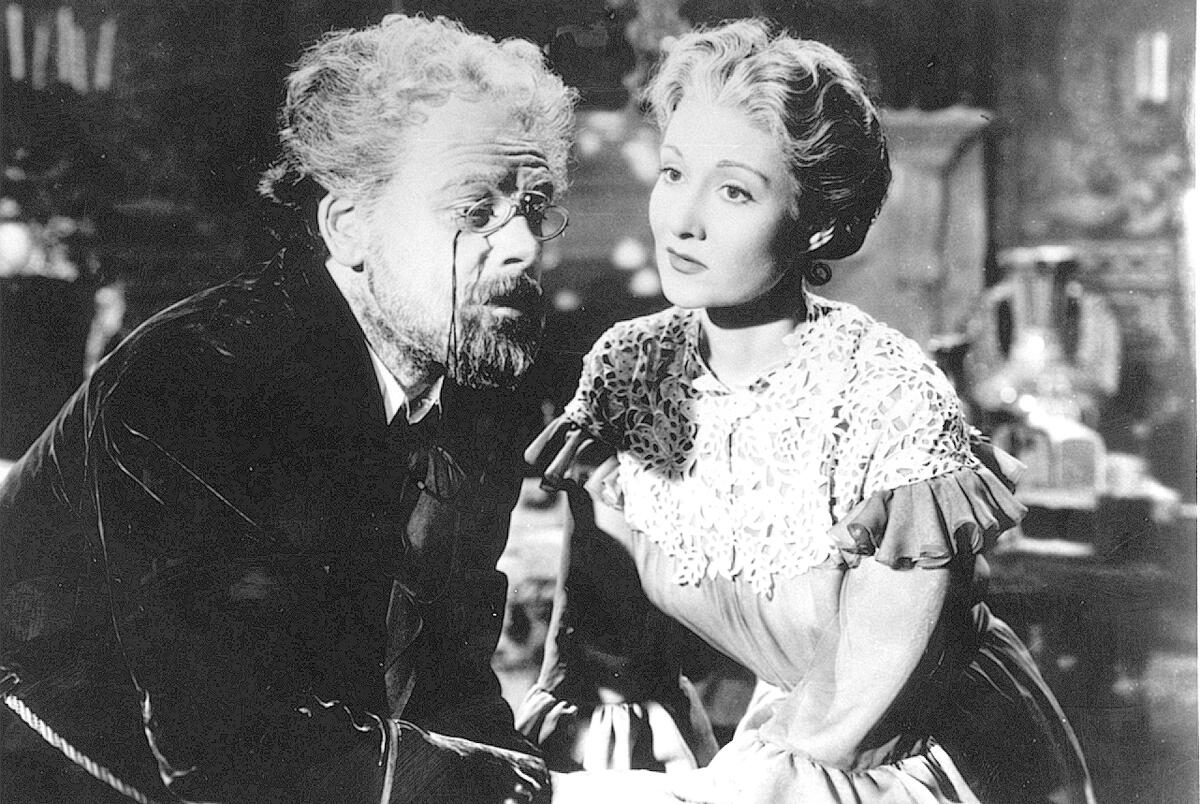From the Archives: ‘Life of Zola’ favored with glamor premiere

Dispatched on its way with brilliance “The Life of Emile Zola” will from all signs enjoy a most favorable career at the Carthay Circle Theater. It is a notable presentation of a biographical story with Paul Muni most aptly chosen to fulfill the duties of star.
Normally it will be associated with that other outstanding achievement of his, “The Story of Louis Pasteur,” which won high recognition from a discriminating public, and also pleased a popular audience.
CRUSADING HERO
Muni appears as the great crusader, working against the petty hypocrisies of his time, and coming to the rescue of a man falsely accused of treason.
He exemplifies great courage and the spirit of action, which would not be defeated. It is a role of heroic proportions, which requires admirable sustaining of its purpose, and Muni is the actor to give this fully.
The picture largely centers around his personality. There are other parts eminently well played by Joseph Schildkraut as Dreyfus, Gale Sondergaard as Mrs. Dreyfus, Gloria Holden as Mrs. Zola. There are effective character portraits by a host of people.
DIRECTION FORCEFUL
The detail of personnel is far above the average, and the direction by William Dieterle has sweep that makes the production move with strength and serenity.
And even though there is necessarily much of polemics and argument in climaxing dramatic scenes there is also a reliable humanness.
All in all, “The Life of Emile Zola” may be described as memorable, and the sort of picture that is upbuilding for the screen.
It will win many new audience members to the medium, and appeal to an intelligent taste.
Stars and executives were out in numbers for the opening, and radio ceremonies were handled with good judgment under the direction of George Jessel.
More to Read
Only good movies
Get the Indie Focus newsletter, Mark Olsen's weekly guide to the world of cinema.
You may occasionally receive promotional content from the Los Angeles Times.









